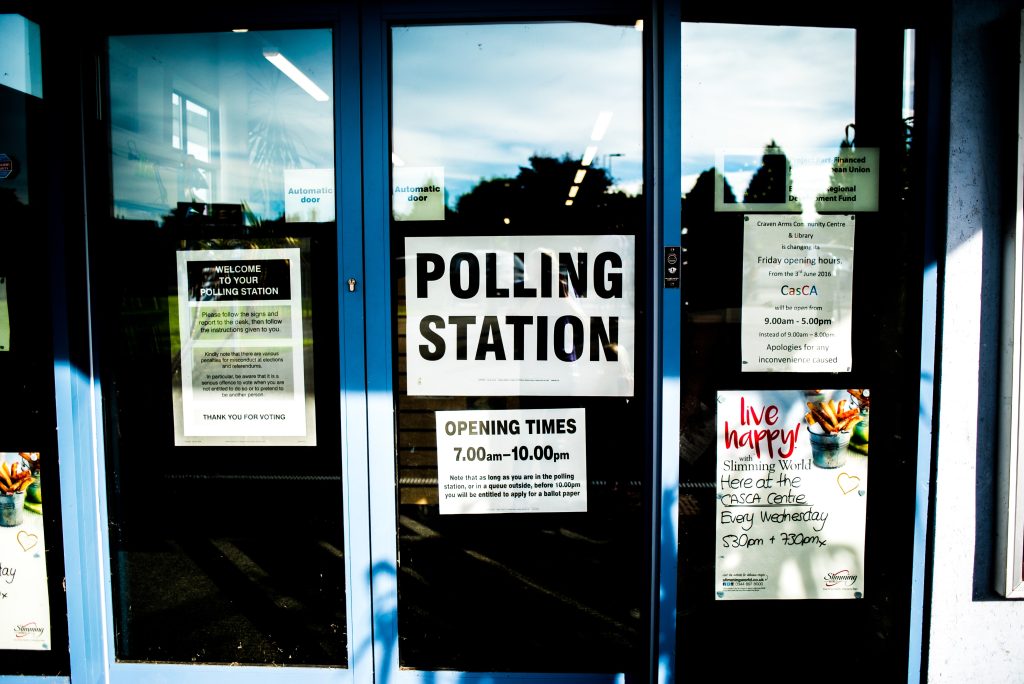The news lately feels like it’s been swamped with politics, at least from where I’m standing in Europe. The Danish general election has just wrapped up, Italy elected a far-right President in a snap election a month ago, the UK is cycling through prime ministers at an alarming rate, the US midterm election is happening today, and so on and so forth. With the amount of political discourse online, it’s hard to escape its constant onslaught, and pick out the truth from the lies. In addition, people’s reactions to those with differing opinions (especially political), are becoming less and less civilised. Friends and households who were once able to cast opposing votes in peace, can now be at each others’ throats. Social Media riles us up with violent discourse, extremist views, and misinformation that is fed to us on our feeds, and it affects how we vote.
We have influence from outside sources.
There are multiple examples of state-sponsored misinformation campaigns targeting the elections, referendums, etc. of other countries. The goal is to encourage people to vote for the candidates that would best suit their interests. They erode trust in the media and public officials and control social media trends.
The most prominent examples of this over the past few years come from Russia, whose interference in the 2016 presidential election in the US and the Brexit vote in the UK was well documented. Their online misinformation activities didn’t stop there of course. Throughout their invasion of Ukraine they have tried to alter the narrative of the invasion, and erode Western support for Ukraine. Most recently, a cybersecurity group spotted their misinformation campaign in use for the midterm vote in the US today. Social media accounts linked to Russian interference in the 2016 and 2020 presidential elections are once again posing as enraged American conservative voters, railing against Democratic representatives. In addition for this year, there is also the goal of removing American military and financial support from Ukraine, by reducing support from the public. Social Media companies are either unable, or unwilling, to stop them.
We have influence from the Parties and Candidates themselves.
Despite evidence of interference in elections by the Kremlin and others, the most effective propaganda and misinformation campaigns are home-made. The public are more likely to believe what they’re told by local and familiar people. Of course we can never guarantee that those closest to us are telling the truth.
My first example of this is the British far-right fascist party Britain First, who are famed for their wide use of fake news in their hate-filled activism campaigns. Now, you may question the influence of a small group of outlying extremists. However, online in where their power lies. Before being banned from a couple of major social media networks for spreading misinformation and hate, their accounts were allegedly protected from being removed by the platforms, because of their wild popularity and the advertising revenue they brought in. Eventually, and arguably after pressure from the public, they banned the accounts. Is that the end of it? Of course not. The recent takeover of a certain social media network by an individual claiming to support “free-speech” has seen their accounts re-instated. They can once again freely spread their disturbing ideologies.
My second example is from studies done just before the recent Italian election. Data from the social media analytics firm CrowdTangle shows the the majority of social media accounts sowing seeds of misinformation in the lead up to the election were Italian in origin. The information came from Italian politicians and the Italian media. This meant that the Italian public were more likely to believe the information they were receiving. The content increased anti-immigrant sentiment, attacked the EU and showed support for the Russian invasion of Ukraine. Considering the result of this election was Italy’s biggest political shift to the Right since WWII, we can safely assume that this social media campaign had an effect.

There’s a better way for us to engage with politics.
And that, as I’m sure you’ve guessed, is away from social media. The bulk of misinformation we come across is what is circulated on social media. Algorithms are designed to show us posts we’ll linger on and interactive with. Unfortunately for us, that tends to be the most extreme and inflammatory content. Nothing is more extreme and inflammatory than lies created to be so. Of course, we can’t guarantee that what politicians tell us on TV and in newspapers is true either. However, it’s much easier to detach from these forms of media. A step back from the discourse can allow time to breath and think critically about the information presented to you. It’s also less likely you’ll come across the most extreme and disturbing content and behaviour away from the internet.
LifeBonder’s goal is exactly this: To get us offline and into healthier, more fulfilling lives. LifeBonder acts as a social media platform that focuses on meeting people in real life, offline. We can move our focus into the Mesaverse, a deeper reality, rather than the increasingly clouded and divisive Metaverse. Take control of your vote again.




